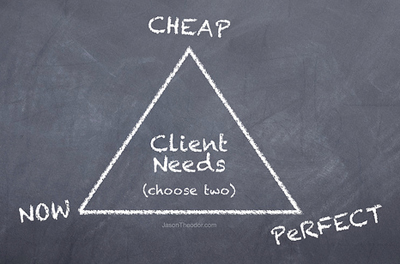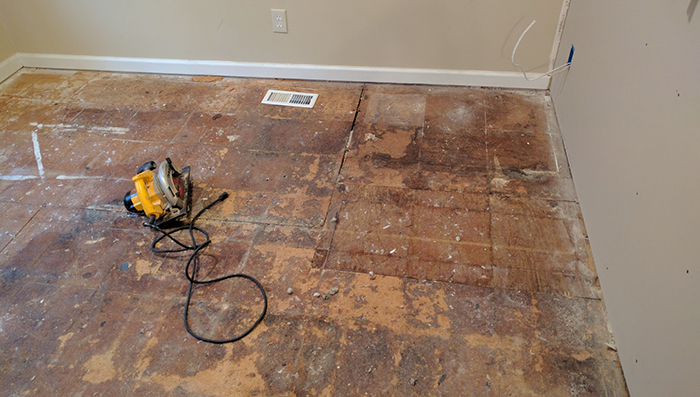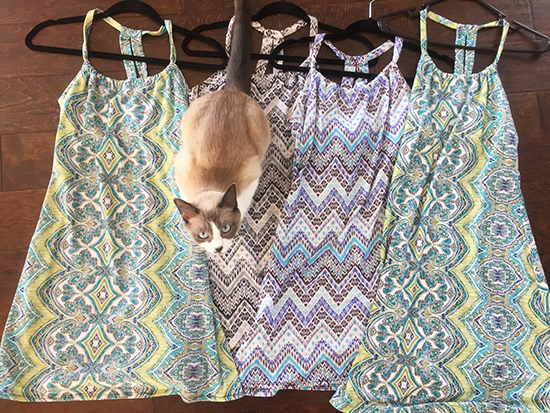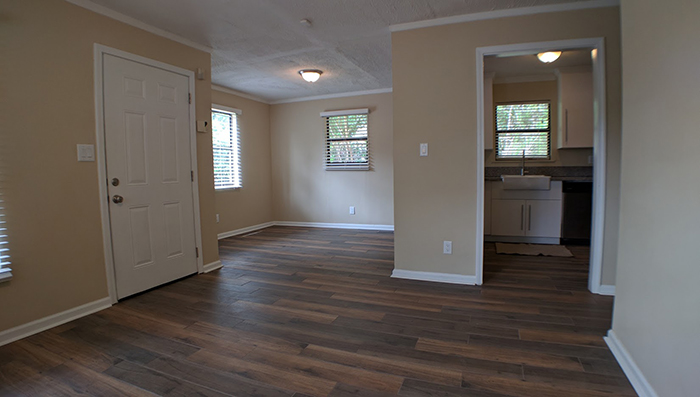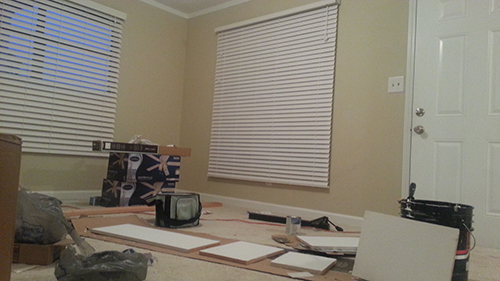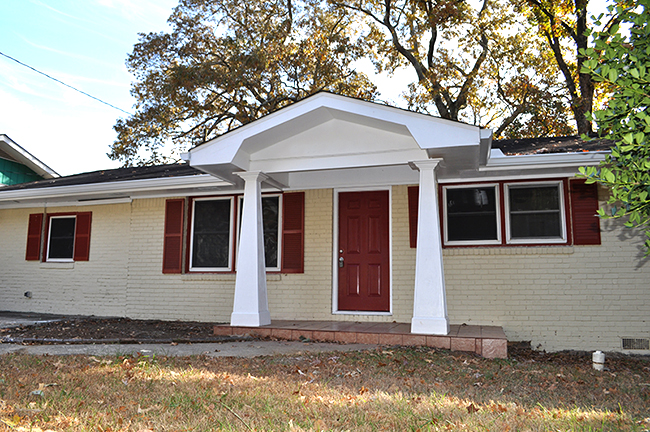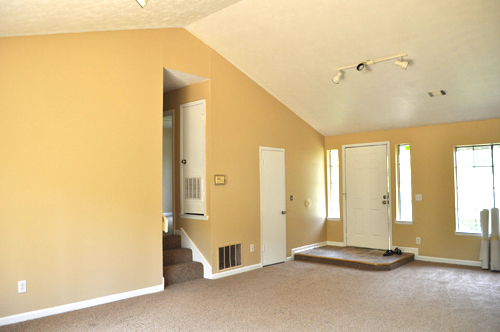I’ve answered many reader-submitted questions about money, travel, investing, real estate, work and life.
Instead of digging through the archives, you can check out these answers below.
Got a question? Pleas record a voicemail with your question here; I tackle these q’s on the Afford Anything podcast.
Money Questions
How to Deal with Financial Denial? (Or Someone Who’s in Denial?)
I Spend Too Much Money…What Should I Do?
Should People Walk Out on Their Debt?
How Do You Afford Your Lifestyle?
Travel Questions
Is it Safe to Carry Cash When Traveling?
How Can You Afford to Travel the World?
How Do You Afford Health Care While Traveling?
What Did You Do With Your Stuff When You Traveled?
Real Estate Questions
How Much Does Maintaining a Rental Property Cost?
What if I Can’t Hit the One Percent Rule with a Rental?
How Do You Lead Tenants from “Showing” to “Move-In”?
How Do You Estimate Repairs on a Property?
Should You Buy Properties from a Wholesaler?
I’m Upside-Down on My Home. Should I Rent it or Sell it?
Should I Buy a House with Cash?
Should You Buy a Vacation Rental?
Life and Work Questions
Should I Go to Grad School?
Can You Escape the Ordinary? How?
Is There a Secret to Success?
How to Deal with Financial Denial?
“I was wondering if you have ever written an article on converting the (financial) ‘non-believers’?
“I’ve been trying to get my girlfriend to … help us be financially free, but I am having trouble getting her to participate. I know she’s scared to read personal finance blogs and make a budget because she doesn’t want to know how much she wastes every month. She’s in denial.
“I’ve encountered this apprehension with many people in my life. I’m sure it’s a psychological defense mechanism, the ignorance is bliss syndrome. Do you have any tips on inspiring these kind of people?”
Success unfolds when we face the brutal facts about our situation, no matter how dire, while simultaneously having faith that we’ll achieve our goals in the end.
I didn’t make that up. That idea is called the Stockdale Paradox, and it’s named after Admiral Jim Stockdale, a Vietnam prisoner-of-war who helped his soldiers face the brutal reality that they wouldn’t escape their imprisonment for a long time … while simultaneously trusting in their eventual freedom.
So how do you encourage someone in denial to “face the brutal facts?”
A lot of people are turned off by the notion of skimping and saving, but they LOVE the idea of quitting their lousy job.
I’d probably approach the topic with your girlfriend by showing her how passive income can allow her to buy the things she loves. She gets to continue living her lifestyle — AND doesn’t need to work in order to support it!
That should get her attention. Once you’ve piqued her interest, show her how setting aside some money now will create passive income streams for the rest of her life.
This post shows how I created $4,400 per year in passive income from just one of my several rental units. Meanwhile, the guy who lives in that unit, the guy who works hard to earn that rent money, drives a brand-new Mercedes-Benz. If I wanted a Benz, I could buy it purely from passive income in 8 years. (Of course, I could also re-invest that passive income and be one step closer to freedom …)
People are motivated by different factors. I’m motivated by freedom. So are plenty of the Afford Anything readers. Most of us want the autonomy to decide how to live our lives, without being pushed around by economic pressures.
But some people are motivated by material objects — houses, cars, clothes. That’s fine. Tap that motivation, and use it as the source that inspires you to waste less, invest more.
You can fritter money away mindlessly and then stress about the bills (ignorance), or you can retire at 40, travel to Bali and live in a mansion (bliss!). Sometimes it helps to start with the end in mind.
Should I Go to Grad School?
I’m 24 years old. I have a marketing job making about $40k per year (before taxes), half of which I live on, the other half goes into a savings account, which I use for my student loan payment and my Roth IRA contribution. I have about $18k in student loan debt. I have about $15k saved in a Roth IRA, and a few thousand in a 401k plan. I’m happy with what I’ve been able to accomplish so far, but I want to do more.
I’ve been accepted into the MBA program. Total tuition and fees will run me about $15,000. The motivating factor for me wanting to get my MBA is to be able to teach business and marketing classes at a University. In my area, these positions are typically paid around $50,000 per year. Not a bad rate of return, invest $15k and earn $10k more in just one year….. BUT is it worth taking out the extra student loan debt? (This would take my total debt up to around $35k — yuck!)
You’ve stated that your motivation is to teach business/marketing classes at the college/university level. That’s key information, and its good to hear. Getting a masters degree is a mandatory prerequisite to getting that job.
If you had written to me and said, “I want a marketing position at a company,” I’d be a bit more hesitant about recommending that you go to grad school. After all, you can get a marketing job with your bachelor’s degree, and then climb your way up by being an awesome performer. Once you’re on-board with the company, most people won’t know what your highest level of education is. And your rockstar performance at the company will matter more than your education.
But teaching at the college level is different — the degree is literally a requirement; it’s an unavoidable price of entry. So if that’s what you really want to do, then I think that you should go for it.
BUT — and here’s the but —
First I want you to ask yourself one question: Is this your dream?
Don’t take that question lightly. Are you going to want this same dream (teaching at the college level) within two years, when you graduate? Do you want it badly enough that you’re willing to sacrifice traveling, delay investing, delay buying a home and throwing a wedding and having kids, for the sake of pursing this dream?
If your answer is yes, then absolutely go for it. I have no objection to people consciously making sacrifices in other areas of their life for the sake of pursuing a dream. In fact, I think that’s admirable. Everyone who has done anything noteworthy has made plenty of sacrifices along the way.
My only “beef” is with people who assume they should go to grad school because they’re “expected” to, or because they’re dissatisfied with their current job, or because their friends did it. That’s not sacrifice on behalf of a dream … that’s sacrifice for no real good reason, other than succumbing to social pressure.
Is it Safe to Carry Cash When Traveling?
How do you pay for things when you’re traveling? Is it safe to carry that much cash around?
The more you’re off-the-beaten-path, the more likely cash is your only choice.
If you’re in Burma, buying a cup of tea from a market stall, you’ll need cash. But in more developed countries, you’ll be able to swipe plastic.
Don’t assume that “developed countries” is synonymous with the Western world. There are plenty of highly developed countries across the Middle East and Asia. The United Arab Emirates, Egypt, Malaysia – these nations, especially their major cities, are far more advanced than you might imagine. (The flashy wealth in Kuala Lumpur is unbelievable. It’s what I imagine Beverly Hills to look like.)
So, onto the second part of your question – how do you keep your money safe? Credit cards give you the highest levels of fraud protection, so use it when you can. When you use cash, withdraw money from an ATM rather than going to a money-changer. You’ll get the best exchange rate.
Withdraw ONLY as much cash as you need for about a week. Put the majority of that into a “money belt” that you wear under your pants. Stash only one day’s worth of cash into your wallet. That way, if you get pick-pocketed, you’ll only lose a day’s bills.
Can You Escape the Ordinary?
“I am a single woman with children who believes I can live a great life traveling and making life grand, in spite of the statistics out there. Do you think its possible? Can you offer some saving/investing tips?”
I’m so glad you wrote to me. YES, I think it’s possible to live any life that you desire. I absolutely, completely, 100 percent believe that.
Ignore the statistics. You’re not a stat. You’re an outlier. The upper end of the bell curve. You’re unique.
How do I know that? Because you dared to ask. You wrote to me — a complete stranger — for advice. Most people wouldn’t do that. Most people would sit on the couch watching American Idol reruns.
Most people — regardless of their age, income, family or financial situation — don’t have the courage to dream big. Most people spend the whole day saying self-defeating things like:
- “I’ll never be rich.”
- “I could never afford that.”
- “People like me don’t get to do things like that.”
- “Good for her, she gets to galavant and have fun, but I have to (fill-in-the-blank with crummy obligation).”
And you know what? Whether you think you can, or think you can’t — either way, you’re right. Life is completely what you make it. Especially if you live in a free, first-world country. Then there’s really nothing stopping you.
Regarding the second half of your question — do I have any saving or investing advice? Of course I do. But I won’t tell you to clip coupons (ugghh) or invest in index funds (though I love ’em!), because those are tactics, and tactical maneuvers are secondary.
The best advice I can give anyone is to align your spending with your values and priorities.
Almost every financial stress that I see is the result of people spending in a way that’s misaligned with their priorities. It leads to staggering debt, bankrupt college funds, meager retirements, and — perhaps most terrifying of all — cubicle jobs. Eek!
But when you can kick back and say, “The most critical thing is food, water, medicine and safety. Let me make sure I can pay for that, not just today but years into the future. And after that, my real dream is …”
That’s the moment when driving an old car no longer feels like a sacrifice. Would you rather drive an Audi or quit your crummy cubicle job? Would you rather have granite countertops, or the flexibility to take a major career risk?
(By the way, I realize I might sound like I’m anti-luxury items. I’m not. I’m pro-anything that’s a conscious priority. And I’m anti-anything that’s not.)
In my own experience:
When I was 22, I wanted to travel more than anything else in the world. I wanted it so badly I could taste it. I thought about it constantly. And I aligned my spending with this top value.
That meant that I lived incredibly frugally. I lived in a tiny, tiny studio apartment (I could reach the kitchen sink from the bed — I’m not kidding.) I drove a car that was older than me. I wore thrift-store clothes. And I saved almost $30,000, which allowed me to travel the world nonstop for more than two years.
But another example:
Right now, my priorities have shifted. I don’t want to do a two-year round-the-world trip anymore. I want to build streams of passive income — so that my money can buy time. I want to live in a comfortable home, work on a MacBook, and enjoy a gym membership — even if it comes at the expense of travel. So my spending has shifted to align with my new priorities.
That’s what it’s really all about. All the details that financial bloggers talk about — insurance premiums, coupons, the price of gas — those are all just details. That’s minutia.
Step back and take the big-picture view: is your money flowing in the same direction as your values and priorities? If so, you’re in the right place. If not, make a change.
It’s as simple as that.
Psst – want to learn more about how to escape the 9 to 5 grind? I have a free ebook that details how I did it. Click here for access.
I Spend Too Much Money…What Should I Do?
I often write about figuring out WHY you spend. It’s too simplistic to write a tactical list that says “Don’t Go to Restaurants.” That advice does nothing to address why you’d drop a hard-earned $20 at a restaurant. Are you terrified of cooking? Do you want social interaction? Are you trying to flirt with a particular server?
Money is about emotions, not laws or logic. So when Kari the musician called into Marketplace Money to say that she spends too much money at bars, the natural question became WHY?
She rehearses alone all day, so by 5 p.m. she’s starved for human interaction. She goes to bars to socialize.
Awesome. Now we know the root cause.
That’s when I gave her the weirdest personal finance advice in the world: Keep hitting the bars. (Really, who says that?)
But while you’re there, remember: you don’t want a $14 martini. You want friendship. Hang out with your friends — while nursing a cheap domestic beer.
Don’t be so Tough on Yourself
Another caller, Seth, worried he spends too much money watching movies. Of course, he also saves 70 percent of his income.
Dear Seth: If you’re saving 70 percent of your income, you rock. So I said something unexpected: maybe you don’t need to save more.
I’m not trying to be contrarian for it’s own sake. But a person with a 70 percent savings rate doesn’t need to be nit-picking at the fringes. I advocate the two-step budget — skim your savings off the top, freely spend the rest. Save a minimum of 20 percent, but ratchet it upward as you see fit. A savings rate of 50-70 percent will bring you unimaginable freedom and options.
That said, there’s a difference between spending lavishly on something you love vs. frittering cash away on junk. And unless you know your Big Why, any money in your pocket is at risk of getting lost.
Plug the Leaks
Most people are unaware of the leaks in their spending. They think it’s “normal” to buy a luxury car. They think it’s “normal” to spend $100 on a haircut. They think it’s “normal” to throw away clothes that aren’t crisp and new.
Who cares if it’s normal? It’s not good! Normal people are broke. Normal people are drowning in debt. Normal people sit in bumper-to-bumper traffic to get to a job they despise, while daydreaming about the lower-paying but higher-satisfaction career move they’d love to make … if only they could afford it.
We don’t question spending money on electricity, running water and fresh fruit in the middle of winter, because we value those things. We value them enough to call them “needs,” despite the fact that the majority of mankind hasn’t had those luxuries. When we start questioning an expense, its for one of two reasons: 1) the price is beyond our means, or 2) we don’t love it enough.
If your gut says you spend too much money something you can easily afford — it’s a leak. That’s not because you can’t afford it. It’s because you don’t love it enough.
If your gut says you spend too much on something you love, and your budget feels stretched tight — it’s a leak, but for a different reason. You’re not saving enough.
Most leaks in our budget boil down to one of these two issues. Money management is the art of aligning our spending with our values. It sounds simple. But the practice is messy.
That’s what makes it fun.
Is There a Secret to Success?
“I turned down two job offers in D.C. because I knew that wasn’t the lifestyle I wanted.There’s nothing that I could want more than to write on my own and become location independent. That’s why I took the easy day job in June to figure out how to make this possible.
So here’s the question that I’ve hesitated to ask but am dying to know the answer – How do you do it financially? I’m sure people ask you all the time, and I feel like I’m asking some huge secret to success. I’ve seen the few advertising spots on the footer of your pages, and I know you do one-on-one coaching, but certainly there’s more?”
I like that you put the phrase “huge secret to success” in your question. There’s no secret – although you might say there are plenty of secrets, plural.
Our cultural myth says there’s one solution: the Silver Bullet. The Holy Grail. Prince Charming.
This myth is convenient: Problem, solution. Villain, hero. Life will be great as soon as we find Superman / Sherlock Holmes / the winning lottery ticket.
Thanks to this myth, we say things like “I need to invest in the Next Hot Stock,” when in reality we need to invest in 500+ stocks, the majority of which grow profits and shoot out dividends.
We say “I need an awesome real estate investment,” when in reality we need to create several awesome real estate investments and invest in the market and earn a kick-butt income and not spend too much and legally minimize our taxes.
Funding my location independent life is a bit like finding college scholarships: I enjoy multiple streams of income.
[UPDATE 2015: I now generate enough passive income — via real estate investments — that this money alone can totally support my cost-of-living. The rest of this article, below, was written back when I relied on my freelance/online income to pay the bills. If you’re in that boat, enjoy this article – I hope it helps. 🙂 ]
One client pays me to edit their weekly newsletter. Another client pays me to write two articles per week. There’s even a print magazine that asks me to write one story per year, during the holiday season when they need all hands on deck. It adds $600 to my pocket each December — enough for a plane ticket to somewhere warm.
Our mind can only track a limited number of tasks. The key this successful juggling act is that I charge what I’m worth. I won’t waste my time on projects that pay a pittance.
Run Your Life Like It’s A Catering Company
Imagine that you run a catering company. Each year you cater some massive event like the Wimbledon Championship parties or the SuperBowl box seats.
This annual event earns your business all the revenue it needs for the year: enough to pay your staff, pay yourself, and cover your overhead.
You could cruise the easy road and not look for any other jobs. You could bust your butt one month a year and relax the other 11 months.
But this would be foolish. Your company’s success or failure would depend on a single client. If they drop your contract, you’re screwed.
So you diversify your income. You start catering weddings, graduations, reunions. They’re less lucrative contracts — more work for less money — but they provide a buffer. If Wimbledon drops you, your company will survive.
Any business owner would do this to protect his company. So why don’t individuals do this to protect themselves?
Why do we put all our eggs in one basket — relying on one employer for 100% of our income — rather than diversifying into multiple income streams?
Here’s The Huge Secret …
Most of the world sees self-employment – and a location independent life — as unstable. Most of the world is wrong.
People who have only one source of income — their full-time job – stand on shaky ground. Every dime hinges on just one “client,” their boss. If they get fired or if their company collapses, they’re screwed.
I have multiple streams of income. I’m diversified. I could lose a client and be fine.
But there’s a paradox that comes into play. It’s called the Pareto Principle. This principle – also known as the 80/20 rule – states that 80 percent of your results come from 20 percent of your efforts.
In other words, 80 percent of your income will come from 20 percent of your clients.
There’s a natural tendency for this to happen. I have a few high-dollar clients – my 20 percent – that pay substantially better than the rest. I put a high priority on making sure these clients are happy. But I also pad my income enough so that I’m not dependent on them.
Losing my best clients would be a bummer. But I’d be fine because I minimized my dependence on these clients – minimized my risk – in advance.
At heart, this post is about risk management. There’s no Silver Bullet or Superman.
The Bottom Line:
A single income creates dependence. Multiple streams of income gives you flexibility.
How Can You Afford to Travel the World?
“Please could you give more details on how you were able to afford to travel the world.
“What your planned budget was ahead of time, how you earned money ahead of time, how you saved money while you were traveling (e.g couch surfing or hostels), what other ways you cut expenses on food, transportation, and lodging, admission to tourists spots, etc.
“I really would like to know. More specifics would help me evaluate if/how I could implement this in my life.”
If you want to travel around the world, do it. People regret chances they don’t take more than they regret the opportunities they took.
Let’s tackle your questions one by one.
#1: What Was Your Budget?
I budgeted $1,000 per month, excluding airfare and health insurance. That turned out to be an over-estimate.
In the Middle East I spent $600 – $700 per month, and that includes the high cost of being “on the go” – such as bus fare. If I had been grounded in just one city, like Cairo, I could have probably gotten by on $500.
Southeast Asia had the same pricetag. Food and housing cost more, but my travel pace slowed. Those two factors balanced each other out.
Australia, where I spent 10 months, and Europe, where I spent 3 months, both cost me an average of $22 – $25 per day, which comes to $660 – $750 per month. My “quality of life” (the sacrifices I made in order to live so cheaply) was rougher in Europe and Oz. I lived large in Asia and the Middle East, where $700 a month bought me daily massages and unlimited iced coffees.
#2: How Did You Earn Money Ahead of Time?
Back in the U.S., I worked full-time as a newspaper reporter and editor. My starting salary was $21,000 per year. No one goes into journalism for the money.
But I hustled. I worked full-time during the day and wrote freelance articles at night. I freelanced for food magazines and for women’s magazines. I reviewed Broadway shows touring through Denver. I wrote for niche publications for the “engraving industry” (how random is that?) and the smoothie-franchise industry (random again!). I wrote until my fingers hurt.
Earning is half the battle; saving is the other half. I lived in a cramped studio apartment. My $400 carwas so rusty that puddles would splash into my lap as I drove. I whittled my living expenses down to $1,000 per month, including rent. I saved the rest.
#3: How Did You Save Money While Traveling?
Couchsurfing.org – a not-for-profit website that lets you sleep on stranger’s couches around the world – is a fantastic tool in some cities and hopeless in others.
In my experience, Couchsurfing works best in cities with low demand / less competition. I couchsurfed my way around Portugal, but it felt impossible to find a couch in Paris. If you’re considering Couchsurfing.org, start hosting travelers while you’re at home.
Accept Invitations from Strangers
In the “offline” world (the “real world”), plenty of locals invited me into their home for the night. It’s amazing how many friendships you make just by striking up a conversation in a park or at the beach.

(A penny farthing is one of those bicycles with a huge front wheel and a tiny back wheel. Apparently there’s a small town in Tasmania that dedicates an entire weekend to competitive penny farthing races.)
I had never heard of a penny farthing before I met him, but how can you say no to a guy in plaid suspenders and a bow-tie? I spent a week with him and his wife, didn’t spend a penny (no pun intended!) that entire time, and created fantastic new friendships with his entire family.
Of course, staying with people – either through formal venues like Couchsurfing or through informal venues like meeting 70-year-olds in a city park – only accounts for about 20 percent of my total accommodation. The rest of the time, I’d stay in hostels (in Europe or South America) or in guesthouses (in Asia).
During the times I traveled alone countries that only offer guesthouses (guesthouses sell private rooms, which are pricier than shared hostel rooms), I’d keep my eyes peeled for another female solo traveler. After some small talk, I’d ask her to be my roommate.
During my first trip to Thailand (I’ve since returned 5 times), I randomly met – and became insta-friends – with a British girl who rode to the islands on the same boat that I did. We roomed together, traveled together for a few weeks, and to this day — years and years later — we still keep tabs on each other through Facebook.
In other words, the more you travel, the more friends you make worldwide. And the more your friends are scatted across the globe, the more you’re able to travel. It’s a self-perpetuating cycle. You simply have to launch it.
#4: How Else Did You Cut Expenses?
We’ve covered lodging costs pretty thoroughly by now.
Admission to Tourist Spots – My litmus test is: “Will I regret NOT going here?”
The Taj Mahal had a $20 admission fee and it was worth every penny. The temple relics of Bagan in Burma, the ancient ruins of Angkor Wat, the Komodo dragons of Indonesia, the Van Gogh museum in the Netherlands, the all-day boat to the Great Barrier Reef, the site of Jesus’ crucifixion – these are absolutely worth the admission fee.
But some random museum for yet another obscure artist I’ve never heard of? No thanks.
Transportation – I took one trip (Denver to Spain) through frequent flyer miles. The rest of the time, when I had to fly (which was rarely), I used local airlines. In Europe, RyanAir and Easyjet are the cheapest carriers. In Asia, I used AirAsia – they offer a $99 ticket from London to Kuala Lumpur, Malaysia.
Occasionally I’d encounter “hiccups” that would cost me dearly. Last June when hundreds of pilots went on strike, I ended up stranded in Colombia and scrambled to buy a last-minute emergency ticket. But if frugality is a habit, you’ll have a “cushion” to cover these costs.
Food – The only time I ate at a fancy restaurant was on my birthday. The rest of the time, I ate in small cafes and roadside stalls.
I stopped eating meat in many places where I traveled, mostly for sanitary reasons. As an unintended consequence, this saved me a lot of money, as well.
I also limited my alcohol consumption, especially in Muslim countries where there’s a hefty sin tax on beer. Lots of travelers spend tons of cash on booze, then complain that they can’t afford to do something awesome like scuba-diving.
How Much Does Maintaining a Rental Property Cost?
How did you come up with the your maintenance cost estimate? I would expect much higher on such a large and old house. You’re probably familiar with the commonly used “50% rule” which states you should prepare for total operating costs to be 50% of your rents. If that’s the case, you’re severely underfunded.
There are dozens of “rules of thumb” to predict how much you’ll spend on a rental property.
The 50% Rule states that all your operating costs – such as property tax, insurance, repairs, maintenance, water and trash service – will equal half of your rental income. Anything that’s left over either goes to the bank – to repay your mortgage – or goes to your pocket.
It’s a popular rule, and it’s one that I completely ignore.
The 50% Rule is based on a variable – the rent – that has absolutely zero relationship to your operating costs. Regardless of what I charge for rent, the rest of my bills — water, trash, insurance and taxes — remain the same.
As a landlord you realize the arbitrary nature of rent. Here’s how rent pricing works: You pick a number out of thin air, advertise it as ‘rent’ and see if anyone bites.
(Okay, it’s not exactly like that. You study the area to see what other places are renting for. But that relates more to cyclical market demand than it does to the cost of dishwashers.)
If no one wants the space, you lower the rent. If people flood your Inbox, you take down the ad, raise the price, and re-post the ad.
I’m oversimplifying. I toured about two dozen rental units in my neighborhood to get an idea of what the competition charges – so the number I set as the rent wasn’t completely out of “thin air.” But ultimately the difference between charging $700 or $800 per month boils down to a combination of market indicators and my personal confidence.
Let’s imagine Angelina Jolie just announced she’s moving to the neighborhood, so everyone wants to live here. I raise the rent $100 on each of the two single-bedroom units and $200 on the three-bedroom unit. That’s an increase of $4,800 a year.
According to the 50% Rule, my predicted “operating costs” should jump by half of that, or by $2,400 a year. But that doesn’t make sense. There’s no relationship between rent and costs.
To put it simply: You charge what the free market allows you to charge. You spend what you’re forced to spend. The two are not related.
That’s why I refuse to sign a contract with any Realtor who gives me a line such as: “Well, I don’t know what the average water bill is, but if it’s high you can just raise the rent to make up for it.”
Hogwash. The free market sets the rent, and the market doesn’t care what my water bill is.
To go back to the beginning of the question – how did I arrive at my operating cost estimates? There are a few ways to do it:
#1: You could take the cost of items that deteriorate over time – a dishwasher, a roof, the water heater, the insulation in the attic – and “spread” that cost, or “amortize” it, to estimate how much you’d pay per year. For example: bathtubs need to be replaced every 12-15 years, so the bathtub’s price per year is X divided by 13 or 14.
#2: You also assume about 5-10 percent of the rental price as the cost of hiring a property manager – since managers do, in fact, often tie their costs to the rental price. (It’s an incentive for them to increase the rent).
#3: DON’T count upfront one-time expenses that are a result of buying a fixer-upper. Maintenance costs will recur forever. Upfront repair costs are part of the “purchase price.”
#4: There’s a rule-of-thumb that says your “maintenance” costs (new paint, new carpet, etc.) are 1 percent of the purchase price per year. I’m dubious about the correlation, but that rule-of-thumb sounds more reasonable than the 50 percent rule.
Before you make any purchase, read this article that explains how to calculate the Cap Rate and the Cash-on-Cash Return.
How Do You Afford Health Care While Traveling?
“What do you do for health care every time you move to each country? Is there a US health care that travels with you? Or do you get the local health care each time?”
I purchased traveler’s health insurance, which mandates — as part of its eligibility requirements — that I must be outside the US or Canada for at least 6 months out of every year. The insurance had a very high deductible, somewhere in the neighborhood of $2,000 or $3,000, so conceptually it was a worst-case-scenario, “if-I-get-hit-by-a-bus” insurance.
That said, health care in many other countries is top-notch and far less expensive than it is in the U.S. My boyfriend and I both received amazing health care in Thailand.
My treatments were routine — I visited the dentist, sat for an eye exam and filled a new contact lens prescription.
His treatment was much more complex. He asked a Thai dentist to extract all his mercury teeth fillings and replace with them with gold fillings — a process that required many, many dentist visits over a two week span. (He hated the idea of having mercury, a toxin, embedded in his teeth.)
This extraction in the U.S. would have cost several thousand dollars. In Bangkok, it cost $400 — literally a fraction of its price here at home.
Many doctors and dentists overseas are fantastic. It’s normal to be scared of the unknown, but this fear might hold you back. Many foreign doctors attend U.S., Australian or British medical schools before returning to their native Thailand, Peru or India.
Low health-care costs abroad have created a large “medical tourism” industry that caters to people who fly overseas specifically for the sake of medical treatment. These aren’t sick or injured travelers; these are Westerners who fly overseas for the sole purpose of finding good-value health care.
As a result, there’s an abundance of international hospitals filled with English-speaking staff.
AWESOME TIP: Want to recognize a sign that a countries’ hospitals hold high international esteem? Look at where the leaders of other nations travel for medical treatment. Many Nepalese diplomats and heads of state helicopter to Bangkok for their medical care.
Should People Walk Out on Their Debt?
Are you encouraging people to walk away from debt… underground mortgages and credit cards? That actually wasn’t clear to me. I was waiting for you to say how you could use the psychological trick of forgetting to pay debt down painlessly.
I was a little unnerved by the post, but then I thought about all the hard working middle class folks who have these kinds of debts… and how they’d benefit from it… and big banks would suffer, slightly. Happy dance!!
I will say, not mentioning the financial consequences on your credit makes it feel like an incomplete piece, like I was unsold on the idea… but only for this reason. Like, what happens to me once I’m wealthier and want to get a business loan to start a bakery or something like that?
Ah, great question. Here’s my reply:
Nope, I didn’t mean that at all. I’m suggesting “Forget Your Debt” as a strategy for paying off your debt.
The “Forget Your Debt” strategy is a mental shift: Stop thinking of yourself as someone trapped in a hole that you desperately need to claw your way out of. Start thinking of yourself as a person — a free person — who wants to build wealth.
Saving money on interest payments (by repaying your loans) is one of many great ways to build wealth. Compare your interest rate to the returns you can achieve by investing your money elsewhere. It’s likely that you’ll decide that repaying your debt in its entirety is what your wealth-building strategy should target first.
Of course, if you have low-interest debt (like a very low-interest student loan, a low-interest mortgage, or a zero-interest payment plan to a hospital), you might strategically decide to make only the minimum payment, so you can invest your money elsewhere.
The mental trick is to shift from thinking about “climbing out of debt” to thinking about “saving as a means to building wealth.”
The debt mindset can make you feel imprisoned. You won’t get very far if your goal is simply to “get to zero.”
The wealth-building mindset can make you like a free agent who has a pro-active goal to build infinite wealth (or a million dollars, or whatever your goal is). Repaying your debt is simply one piece of the bigger picture.
How Do You Afford Your Lifestyle?
I would like to know more about HOW you were able to do what you did. I think it’s fantastic, but the articles I find don’t really go into the details in order for someone else to follow in your footsteps. I assume that’s what your coaching sessions cover.
You mention “following in my footsteps.” I discourage that. I’m here to guide and inspire you to blaze your own path. Don’t follow in anyone’s footsteps — not even mine.
I built my choices around specific priorities that many others won’t share. For example: I wanted to travel for at least 2 years without any employment (not even self-employment).
Not everyone shares this vision. Some people love the idea of teaching ski lessons in the Alps or teaching sailing lessons in Hawaii. They don’t share my goal of job-free travel. Other people want a mini-retirement, but think 2 years sounds like a long time to be unemployed.
My readers dream of doing many incredible things: launching a business, adopting 5 babies or retiring at 50.
So follow your own path — don’t follow mine. I’m just here to guide and inspire; the vision comes from within you.
That said, here’s how I achieved my dream of traveling for two years (I ended up on the road for two-and-a-half) without income:
- I worked part-time for 2 years and full-time for 2 years with this SPECIFIC goal at the forefront of my mind during that entire time.
- I saved 15% of my pretax income in a retirement account. Retirement always comes first.
- I lived on $1,000 a month in Boulder, Colo. The rent on my studio apartment was $450 per month, including utilities. Groceries tallied $150. The other $400 went towards my cell phone, doctor’s co-pays, contact lenses, my snowboard, miscellaneous stuff from Target … you know, the stuff of life.
- In the spring, summer and fall, I cancelled my car insurance and bicycled everywhere.
- I didn’t have a pet, even though I wanted one. I didn’t get highlights in my hair, even though I wanted them. I didn’t buy Odwalla Superfood juice, even though I loved it. In short: I sacrificed ‘small’ indulgences.
- I didn’t have a television or internet. In fact, I didn’t even have a computer. I used the computer at work for personal errands — my boss didn’t mind because I stayed late and did it on my “own time.”
- I worked a second job in the evenings. In the beginning, I delivered newspapers. That’s right: I would write for the newspaper during the day, and deliver the newspaper at night. Later, I moved onto writing freelance articles for magazines.
Here’s the rub: I don’t recommend this extreme-frugality lifestyle. It’s tough. I did it because I was motivated by a HUGE dream. But if you’re not compelled by a big dream, then that kind of extreme-frugality can create burnout.
What if I Can’t Hit One Percent?
Many of my readers are rental property investors (or aspiring investors). But not all of them live in “cheap locations.”
Several readers have asked what how to invest if they live in a place where houses don’t meet the One Percent Rule.
“My question is about your 1 percent rule for rental housing. What do you think about that rule when applied to the high-cost area where we live?
“(We expect) to have a 3-4 bedroom house that’s worth $650,000 – $750,000 (after renovations) that we rent for $3,200 – $4,000. We may not make much on rental income, but we would be growing a nest egg in the value of the resale of the house down the road — be it 5-10 years down the road.
“We’re curious on your thoughts.”
I crunched the numbers at the low end of the range — $3,200/mo gross income on a house valued at $650,000. I assume you net 70 percent of the monthly income after expenses (although that’s a generous assumption — the industry rule-of-thumb is that you’d net 50 percent).
You’ll net $2,240/mo, or $26,880 a year. Your cap rate is 26,880/650,000 = 0.041, or 4.1 percent.
Historically, homes nationwide have appreciated at a long-term annualized average of about 3-5 percent.
Your city, Arlington, VA, has appreciated at an annual rate of 3.9 percent since 1990, according to Neighborhood Scout.
It looks like the return you’ll get is about 4 percent, based on historic long-term appreciation in your area.
That means this deal isn’t worth your time.
What should you do? Here are two options:
#1: Dedicate a significant amount of time scouting out the best deals. You just need one super-undervalued property to make your personal numbers substantially better than the general average. You can beat the average in rental properties if you buy the right house.
#2: Look outside of Arlington. Imagine a bunch of concentric circles on a map, with your hometown as the epicenter. If there’s nothing that meets the One Percent Rule in your hometown, expand your search to the next ring. Then the next one. And then the next one.
I lived in Boulder, Colorado for 8 years. I never found anything in Boulder that meets the One Percent Rule. But when I expand outward to a small city called Broomfield, Colo., I can find plenty of rentals that meet the One Percent Rule.
Also: Many people who read Afford Anything (mistakenly) think that Atlanta is an awesome place to invest. But you must realize that when I talk about “metro Atlanta,” I’m referring to a place that has a population of 5.2 million people. That’s eight times more populous than Vermont. It’s a bigger population than the entire state of Colorado.
Atlanta isn’t a one-size-fits-all market. I can’t paint such a massive metro area with one giant brush.
Sure, there are some pockets of metro Atlanta — like east of Panthersville, Georgia — where I can buy a foreclosed home for $21,000. But there are other areas in Atlanta where a 1000-sq.-ft. condo sells for $450,000. Location, location, location.
If I only looked at my own backyard, my quest to meet the One Percent Rule would be a lot harder. I put that in bold because this is a crucial lesson. Almost everyone who emails me, looking for permission to be the “exception” to the One Percent Rule, cites the reasoning that there’s nothing in their backyard that meets that requirement. Well, guess what: There’s nothing in my own backyard that fits the One Percent Rule, either. That’s why I expanded my search outward, in bigger and bigger concentric rings, until I found neighborhoods that have properties that fit this rule.
(It took me a year of fruitless searches to figure this out. Here’s the ah-ha story that I wrote when I did. Learn from my mistake; you’ll save time.)
By expanding outward, I can find better deals — and so can you. Keep looking. Don’t give up.
What Did You Do With Your Stuff When You Traveled?
“Hi! You’ve inspired me so much with your drive to be “location independent.” I was just curious about one thing: Did you sell your home in order to travel? Or did you have your own place to come home to?”
For the sake of saving money, I didn’t have a home … or anything else.
I sold almost everything I owned, including my car and furniture. I sold some stuff for hundreds of dollars, and other things in $20 increments. All the money went towards my travel fund.
Anything I couldn’t sell, I donated to Goodwill or the Humane Society thrift store. The few possessions that remained, like my snowboard, I stored with friends.
I had been renting, so I timed my departure to coincide with the end of my lease. In the span of one week, I quit my job, moved out of my apartment, and flew to Spain with a one-way ticket.
Of course, I knew I’d be traveling for 2+ years. If I had only been going away for 6 months, I would have acted differently.
If I had owned a home, I would have placed a tenant in it and hired a property manager to oversee the building. In fact, I know a woman who has a handful of rentals in Atlanta, but lives in Paris. Her property manager sends her a check every month, which she spends on bicycles and clothes and croissants and whatever else people buy in France. ☺
If you’re a homeowner, and you lived by The One Percent Rule when you bought your house, you’re in a much stronger position to travel than renters are. Renting out your home is the fastest and most surefire way to retire young, travel anywhere, and live free.
How Do You Lead Tenants from “Showing” to “Move-In”?
“I have two rentals, and my own home. I love reading about real estate investing, but the thing I have the most problem with … (is) getting people from a showing, to tenancy. Could you write about your process? What info do you give them at the showing? What questions do you ask them? What credit/background check service you use?”
I have the same problem. I’ll do a showing for prospective tenants. The potential tenant “oohs” and “ahhhs” about the high ceilings and big backyard. They start mentally placing their furniture throughout the house – “My couch would look great here! I can put my table there!” – which is a fantastic sign.
Then I never hear from them again. They never fill out an application. So what do I do?
Nothing. If they’re not on-the-ball enough to fill out an application, I don’t want them as a tenant.
Besides, if they really wanted to live there, they’d apply.
As for the second part of your question, regarding tenant screening: I use TransUnion MySmartMoveas a tenant screening service. It allows you to view their credit score and their criminal history.
(By the way, that is NOT an affiliate link or any kind of paid promotion. That’s just what I genuinely use.)
I also call their current/previous landlord and get a copy of their pay stub. If they live in an apartment building, look up the phone number of the building yourself rather than dialing the number they gave you. Plenty of tenants have their friends pose as a fake “ex-landlord” reference.
Should bad credit nix the applicant? Sometimes.
One of my best tenants had perfect credit except for a foreclosure. The foreclosure tanked his credit score, but I noticed that he paid all his other bills – credit cards, car loans, etc. – on time. His income was almost four times the monthly rent. So despite his low credit score, I let him move in, and he’s been a perfect tenant ever since.
Of course, your results may vary. This is a judgment call. You have to make your own decisions.
Three More Essential Tenant Tips
One of my readers, Karen, emailed me the following tenant screening tips. I liked these so much that I asked her if I could share them with AA readers:
#1: Peep Their Ride.
The MOST important other thing to do is look inside their car when they come to see the rental. You will see their attitude towards their surroundings. The way they keep the inside of the car is the way they will keep your premises.
If the car is old, but clean as a whistle, they take care of their possessions and will most likely keep your rental the same way. If the car floor is knee-deep in fast food wrappers, soiled baby diapers, garbage, empty beverage cans, discarded clothes, this is how they will keep your home. Their attitude towards their surroundings is poor. They will also most likely refuse to pay for – or even acknowledge – their damages.
#2: Visit Their Home.
If they live in town, visit their home. The way their home is is the way they will keep YOUR place.
How can you see their home? You can drop by to give them information. You can arrange to sign the lease there. (You’ll still have time to back out if you see that they’ve trashed it!)
By visiting their home, you will also find out if they have pets. This will be especially important if your lease specifies “no pets.” (Incidentally I never allow pets, especially dogs. When the tenant’s dog bites someone, YOU will be sued. The tenant will get off scot-free, as they have no assets which can be taken in the judgement.)
Pets also leave fleas, tear up carpets, damage woodwork, bark constantly, and defecate in and out of the house (which irresponsible pet owners don’t clean.) Your insurance company will love you if you don’t take pets, especially large dogs.
#3: Use Google Voice (or an Answering Machine).
I use an answering machine for calls. If the prospective tenant is speaking over the sound of shrieks and howls and commotion — if they sound like they’re calling from the raptor house at the zoo — you most likely will not find them to be good tenants.
One day I heard two calls on the answering machine. One was from a man who said: “Hello, this is Dennis. I’m a heavy equipment operator for XYZ Construction Company and I’ve worked there for 3 years. I work 6 days a week, and I’m gone from 6 AM until 6 PM every day. I have my pay stubs to prove how much I earn. My boss will give me a reference.”
The second call said, “Yo. I needs the place. Welfare gives me some money and I live with my Daddy. He won’t let my homies hang at his place. Welfare says they give me mo money if I has my own place. Then my homies can hang at my pad.”
When you use answering machine, you can pre-screen. You don’t have to bother calling back the tenants that don’t sound like good candidates. (And if they imply that they’ll be using your place as a party pad, paid on the taxpayer dime, they might not be the tenants you want.)
The reader who contributed these comments, Karen, has been a landlord for more than 20 years. Karen says: “At one time I had 54 tenants simultaneously in addition to my regular business, and I have always been a successful owner of rental property.”
How Do You Estimate Repairs on a Property?
I have a long list of repairs and upgrades which my house needs, and I would like to find an impartial source for ballpark price estimates. What do you recommend?
Those estimates will vary, depending on what part of the country you live in. Labor rates and materials cost different amounts in different regions.
Furthermore, the costs will vary depending on the scope of work, complexity of the job and the seriousness of the existing damage. Installing large tiles on a non-level flooring surface, for instance, will cost much more than installing tile on a level floor.
You can check a website like Angie’s List for recommendations, but honestly, I would collect three or four quotes from each subcontractor. That should give you a good, representative sample of how much labor and materials for each project cost in your specific area.
Should You Buy Properties From a Wholesaler?
What do you think about buying from a company that sells houses to investors?
Here’s my take: there are plenty of people who will flip houses to other investors. They’re called wholesalers, and like with any other industry, you’ll find honest wholesalers as well as shady wholesalers. However, if you’re not familiar with the area/city, or if you’re new to real estate investing, you may be at a higher risk for falling victim to shady wholesalers.
Plus, the stakes are higher. Fall victim to a shady dry-cleaner or tailor, and at worst you’ve lost the cost of your jacket. Fall victim to a shady wholesaler, and you’ve lost tens of thousands.
That said, I think investing in a different state is a great option for people who live in expensive areas where not many houses meet the One Percent Rule.
If I were you, I’d take a trip to Atlanta or Memphis (or whatever city you were thinking about investing in). You can learn a lot by driving around, eating at local cafes, hanging out at coffee shops, and generally getting a “feel” for the area. You can also meet local property managers.
Beyond that, I’d get an inspector to check out the house before you buy it. This costs about $300 to $500 and it’s worth every dime. You don’t want to be blindsided. I’d also get an appraisal done, another $300 to $500 expense that can reduce the risk that you’re overpaying for a property.
Don’t believe the numbers that the seller gives you. If the seller says that he paid $2,000 last year in utilities, don’t just take his word for it — demand to see the bills. If the seller says the taxes on the house are $5,400 a year, demand to see the tax records.
And never, ever, EVER trust the seller’s “cap rate” or “cash-on-cash return” numbers. Many sellers inflate those numbers by pretending that the home has 100 percent occupancy and free property management. Do the math yourself.
If you have a good team in place (property manager, inspector, appraiser, contractor), you can be a successful out-of-town investor. Just don’t believe everything the seller says. Trust, but verify.
I’m Upside-Down on My Home. Should I Rent It Out? Or Sell It?
An Afford Anything reader recently emailed me about this dilemma:
He’s upside-down on his home. He owes more than the house is worth.
But he wants to take advantage of today’s low housing prices, which will let him move his daughter into the best school district in town. He can put 10 percent down on a new house in a fantastic school district.
He’d lose money if he sold his current home. There are only two ways he can sell it: either bring cash to the closing table (i.e. pay extra to get rid of it!) or process an excruciating short sale, which would destroy his credit.
Both of those choices are off the table. He wants to rent out his current home until the market recovers enough that he can sell it. But is this a good idea?
Check out the details:
MONTHLY INCOME
Rent: $1,600
MONTHLY EXPENSES
Mortgage + Association Payment: $1,200
Vacancy: $100 *
Repairs, Maintenance: $50 – $100 **
Property Manager: $100
Total Expenses: $1,450
This leaves him with $100 – $150 per month in cash flow.
Hold On, Where Did You Get Those Vacancy / Maintenance Numbers?
If the house is vacant one month per year, we can average that out to a monthly vacancy cost of $100. Of course, if it sits vacant for 3-5 months, he’ll be sweating.
The “rule of thumb” is that maintenance will cost 1 percent of the purchase price of the house. Of course, that’s a long-term annualized average. It includes rare, expensive repairs like replacing the roof every 20-25 years and re-painting the siding every 5 years.
Since he has an association payment, I assume his homeowner’s association takes care of all exterior maintenance. That brings his maintenance costs down. (Well, really, it just lumps his maintenance costs into a different category).
Assuming his house is in good condition, his big maintenance costs will rare but costly events like replacing the water heater, buying a new refrigerator, etc. He won’t literally pay $100 every month. Like his vacancy costs, this maintenance cost is a long-term average over the span of many years.
He reported a property management fee of $100 per month in the email that he sent me. That seems rather cheap (it’s only 6 percent of the rent), but some property managers will charge a cheaper fee in a neighborhood with higher tenant quality, so I’ll accept that premise at face value. (Some property managers charge one month’s rent as a “placement fee” for finding a tenant, which is NOT included here.)
So What Do You Recommend?
Here’s my advice:
#1: Use your $100 – $150 monthly cash flow to build some cash reserves. Use this to cover the mortgage payments when your house sits vacant. Vacancy is your single biggest risk, because you’ll have to cough up the cash for two mortgages (your rental house and the home you live in). Strong cash reserves are the single biggest weapon you have against this risk.
#2: Add even more money to those cash reserves so that you can quickly write checks for repairs and maintenance. What if the house sits vacant for 4 months, a tenant moves in, and a week later you need to call a plumber? Cash reserves will help you sleep better at night.
#3: Don’t even think about making “extra” mortgage payments before you have huge cash reserves built.
I’d recommend a minimum cash reserve of 6 months of mortgage payments, and an optimal cash reserve of 8 to 10 months. That way, if you deal with an extended vacancy, you’ll be able to cover the mortgage.
Many landlords “shoot themselves in the foot” by panicking about a vacancy and renting out their home to the first willing tenant that comes along — even if their gut instinct says it might not be a good tenant. That always leads to disaster.
If you have cash reserves to deal with a vacancy, you can take your time and wait for the right tenant — a good tenant — instead of accepting the first person who’s willing to move in.
One of my houses has been vacant for almost three months. (It’s the $21,000 foreclosure, which is in a part of town that doesn’t always attract — um — the most qualified candidates). I’m guessing that the house might sit vacant for four or five months before I get someone in there.
But here’s the thing: Several people said they’re interested in moving in. But none of them have met my tenant criteria. It’s nice to be able to hold out and wait, so that you’ll eventually get the right tenant, not the first one.
Should I Buy a House With Cash?
In my area, I can buy a quality house/duplex for $45,000 – $100,000.
My partner and I want to get a house with great rentability. We’ll live in it for 4 years while I finish graduate school, at which point we’ll move.
We hope to keep the place – as a rental property — indefinitely.
My question is: Are we better off buying a 100% cash purchase that will give us less rental income? Or are we better off financing a property that is more expensive, and will give us higher rental income?
You can’t look at investments in a vacuum. You need to frame the invest within the context of your life.
You’re about to enter a 4-year graduate school program. That means you won’t be earning much income, and you’ll be spending a lot of your time on non-income-producing work.
Given your grad-student status, I’d make an all-cash purchase right now.
After you graduate and you and your partner are both working full-time, you can think about increasing your leverage. But while you’re in school, stick with the option that will free your mental space and maximize your flexibility.
That said, let me add two more points:
#1: Cash Reserves
I don’t know how much money you have set aside for emergencies – such as car repairs, home repairs, and covering your cost-of-living if you can’t find work. I’m assuming that you already have decent reserves built.
Building a cash reserve comes first, before everything else.
If you have to take out a very small mortgage (e.g. plunk down an 80 percent down payment and finance a small piece of the house) for the sake of preserving your emergency fund, go ahead and do it. It’s more important to have a strong emergency fund than it is to be mortgage-free but have $0 in cash reserves.
Why? Let’s say that you’re mortgage-free, but you have zero savings. Suddenly, your heater breaks. In the middle of winter. In Minnesota.
Suddenly, you’re on-the-hook for paying for a very expensive (and urgent) repair. If you don’t have cash reserves, you’ll be forced to charge it on a credit card — with a double-digit interest rate. Yikes!
Feel free to take out a mortgage in order to protect your cash reserves. Think of your mortgage as a “cheap insurance” policy that will protect you from sliding into credit card debt.
Speaking of which …
#2: High-Interest Debt
Since we’re chatting about buying a house in cash, I’m assuming that you don’t have any high-interest debt, such as a credit card. If you have a dime of debt, I’m assuming it’s ultra-low-interest (e.g. lower than a typical mortgage).
If that assumption is wrong … friggin’ pay off your debt. That’s Priority Number One. Build a teeny-tiny cash reserve (about $1,000) and then devote every dime to paying off your high-interest debt.
Assuming you’re debt-free and you have solid cash reserves, shoot for the all-cash rental property purchase. And enjoy grad school!
Should You Buy a Vacation Rental?
UPDATE, 2016: I wrote this article before I started my own vacation rental business: renting an apartment on Airbnb.
I hosted 55 guests and earned $28,268.35 in my first year as an Airbnb host.
I documented and detailed everything — with total transparency around the income and expenses — in a massive four-part series, which you can read here.
I recommend checking out that series and downloading this free PDF guide if you’d like to learn more about investing in a vacation rental.
In the meantime, here’s the original answer below, explaining my ideas about vacation rental ownership before I dove into the scene. Feel free to read it and laugh at me. 🙂
“You talk a lot about rental property — but focus on tenants with traditional long-term leases.
I’d love to hear your thoughts on vacation property. Is this a worse/better investment? Short-term rentals at a premium price during a vacation season? Would you consider this a riskier proposition?”
Renting out a vacation home is one step away from running a hotel.
Your customers expect things that normal tenants would never ask a landlord for: clean towels, rolls of toilet paper, organized kitchenware. You’ll spend a lot more time responding to customer requests, cleaning during the “turnover” period, and scheduling check-ins and check-outs.
People will contact you to ask about availability, amenities, location, pet policy and other questions. A fraction of those people will decide to reserve the home, which means you’ll need to take a deposit (“Yes, we accept Visa”) and send them reservation paperwork. You’ll need to schedule the cleaning crew. You’ll also need to provide furnishings: couches, beds, tables.
The customers will call you at midnight to say their GPS can’t find the location, or the key isn’t at the designated spot, or to ask how to operate the thermostat. They’ll write reviews on Yelp saying the wireless internet is too slow or that the floorboards creak. You’re also likely to endure higher vacancy rates. And in the rental world, nothing is more expensive than vacancy.
You can hire property managers to handle the day-to-day hassles, but they’ll charge a LOT more than “normal” property managers. Many will ask for 50 percent of your income, and that rate is reasonable, since they handle so much more turnover and so many more responsibilities.
Treat Your Business Like a Business
Do I sound like a pessimist yet? That’s intentional.
When you’re contemplating an investment, start with healthy skepticism. Assume it WON’T make money and try to prove yourself wrong. This helps you avoid a massive mental trap: confusing ‘hopeful thinking’ with a business plan.
But now that we’ve practiced healthy skepticism, let’s move onto the pluses –
Vacation rentals (and their close cousin, extended-stay hotels) can be lucrative, if you buy the right place at the right price and manage it well. But I wouldn’t call it an “investment.” I’d call it a “business.”
“Uh, Paula, businesses are investments.”
Yes, but not all investments are businesses.
Some investments are totally passive. Just buy some S&P 500 Index Funds and ride the bull-market wave! Wheee!
Other investments, like owning rental properties, are akin to managing a business. You schedule inspections. You hire and fire plumbers. You spend an afternoon installing blinds. Even with a manager in place, you’re still the Chairman and CEO.
And that’s fine, because index funds and rental properties are two totally different ballgames. Just be aware of the differences from the first inning. Many businesses fail because of neglect.
Here’s the thing: If you want to quit your day job and run a business, you could enter the vacation rental field. Or start an ice-cream shop. Or open a pet food store. And you’d have to do all the due diligence related to the viability of that business in your place and time.
If the math works out, and you’re willing to put in the effort – go for it! Live like no one else for a while, so you can reap massive rewards.
But if you just want to own a beach house that collects rent when you’re not around, I’d seriously think twice.
Your Vacation is Not Your Business
I recently talked my parents out of owning a vacation rental. They wanted to buy a condo in Florida.
“We’ll vacation two or three months a year, and rent it out when we’re not there! The rent will cover most of the expenses! And maybe it’ll go up in value!”
I slapped my forehead. They were expressing code words for: “I don’t have a strategy. I want it all.”
“You’re waayyy better off buying a house in DeKalb County, Georgia, collecting an annual rent of 20 – 33 percent of its total purchase price, and using those profits to take a vacation,” I told them.
They were committing the classic error of emotional investing. They wanted to “feel better” about their vacation condo by thinking: “It pays for itself!”
Why Do You Want It?
So … are you looking at a vacation rental because:
#1: You want to buy a vacation house, and you’d like the emotional satisfaction of having the house pay for itself?
#2: You see a huge demand for short-term rentals, coupled with low rental supply and reasonable home purchase prices?
If your answer is number one, forget it. If your answer is number two, rock on! Awesome! Now we’ve got something to work with!
The next logical question is: After accounting for vacancies and management, which will take a HUGE chunk out of your bottom line, will you make more money on this property as a short-term/weekly rental, or as a long-term (traditional one-year-lease) rental?
Only a spreadsheet can answer that. Call a few property management companies to see what percentage of the rent they charge. Don’t assume you’ll go with the cheapest one. It’s better to hire a stellar manager than a doofus who you’ll have to micromanage.
Scout around on Craigslist, VRBO.com and airbnb.com to find the competition’s weekly rental rates. Poke around on Zillow and Trulia to discover purchase prices of homes.
Then create a spreadsheet with three different scenarios, each containing different vacancy, maintenance and repair estimates. The answer will quickly become clear.







